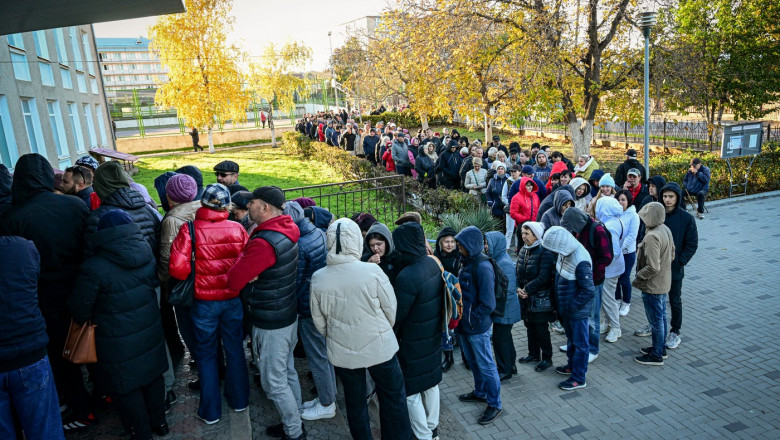The Moldovan elections ended with Maia Sandu winning by over ten percentage points over Alexandru Stoianoglo. However, this victory will have consequences, writes the publication European Pravda.
Sandu faces the challenge of uniting a society that was already divided and is now even more divided by these “elections without rules.” Following the “crisis” in the first round, which showed that Sandu could lose, his team adopted a no-holds-barred approach, adopting actions that further radicalized and polarized the already divided society.
The campaign slogan became “Save Moldova!” This strategy worked. The second round turned into a geopolitical showdown. Pro-Western voters turned out to vote against the possible return of Moldova to Kremlin influence.
Election Day
Election day itself was eventful. There were reports of votes bought with Kremlin money, “mined” polling stations, blocked roads, and voters being bused in. Some were even sent in on charter flights, the publication points out.
For these elections, under pressure from the Ministry of Foreign Affairs of the Republic of Moldova, only two polling stations were opened in Russia, both in central Moscow, at the embassy and consulate. These polling stations had a ceiling: 10,000 ballots for Moscow and 7,800 for Minsk, Baku and Istanbul.
This meant that supporters of exiled pro-Russian oligarch Ilan Shor had a more difficult and expensive route: voters were sent on a charter from Russia to Istanbul, and then transferred on free buses to Moldova. This plan came to light after police began detaining some of these buses at the border.
It is difficult to estimate the cost per vote for Russia. It was an extraordinarily high price if calculated by electoral standards, but in terms of Russia’s military budget, “it is a piece of cake,” European Pravda claims.
Other voter-stirring mechanisms also worked against Sandu, such as mobilizing voters in Transnistria. On election day, long lines formed at polling stations in the Russian-controlled region from the early hours of the morning.
Although voter turnout in Transnistria was high, it did not reach the records of previous years. Even under these conditions, over 20% of Transnistrian voters voted for Maia Sandu, which showed that Transnistria is not a pro-Russian monolithic state.
Parliamentary elections are coming up.
With the elections over, the question now arises: how can a turbulent society be calm? Sandu acknowledges that this is his main task and has expressed his willingness to reconcile even with Stoianoglo, whom he previously described as an absolute scoundrel.
Parliamentary elections are coming up. These are even more important than the presidential elections, given the power structure in Moldova. Sandu, understanding that his party may not win a majority in the new parliament, must now consider forming a coalition.
The president, who had clear communication problems with Moldova’s ethnic minorities during this campaign, spoke in Russian on election night and promised voters that he would address the concerns of minorities and not divide those who voted for or against him.
“Finally, Sandu’s team now (finally!) clearly recognizes that its monopolization of the pro-European agenda, without letting others in, now poses a risk to Moldova’s European future. Sandu urgently needs allies and partners to help keep the country on the EU path, despite difficult feelings in society. The coming months will determine whether this intention will succeed,” comments European Pravda.

